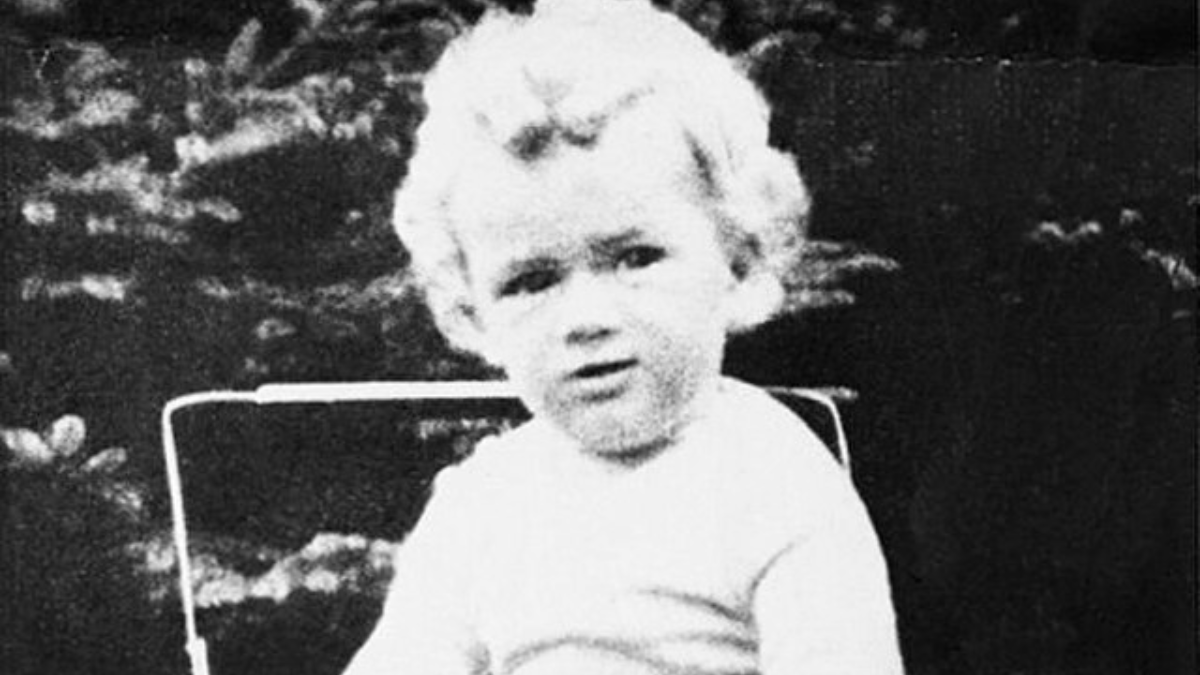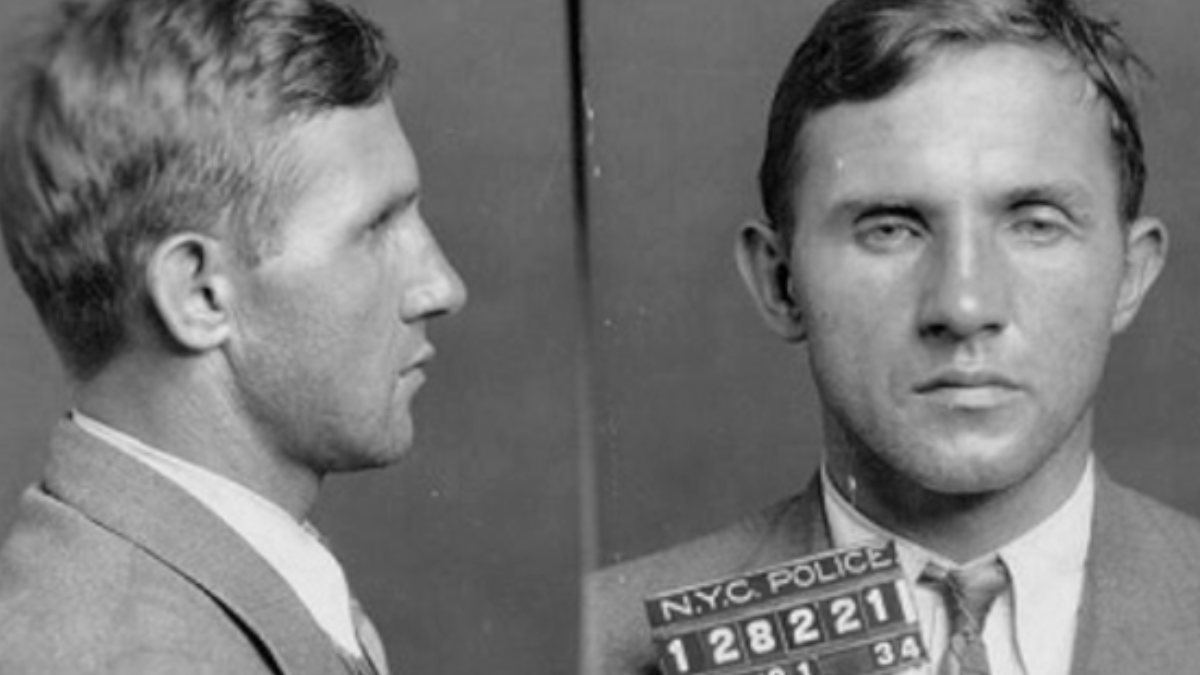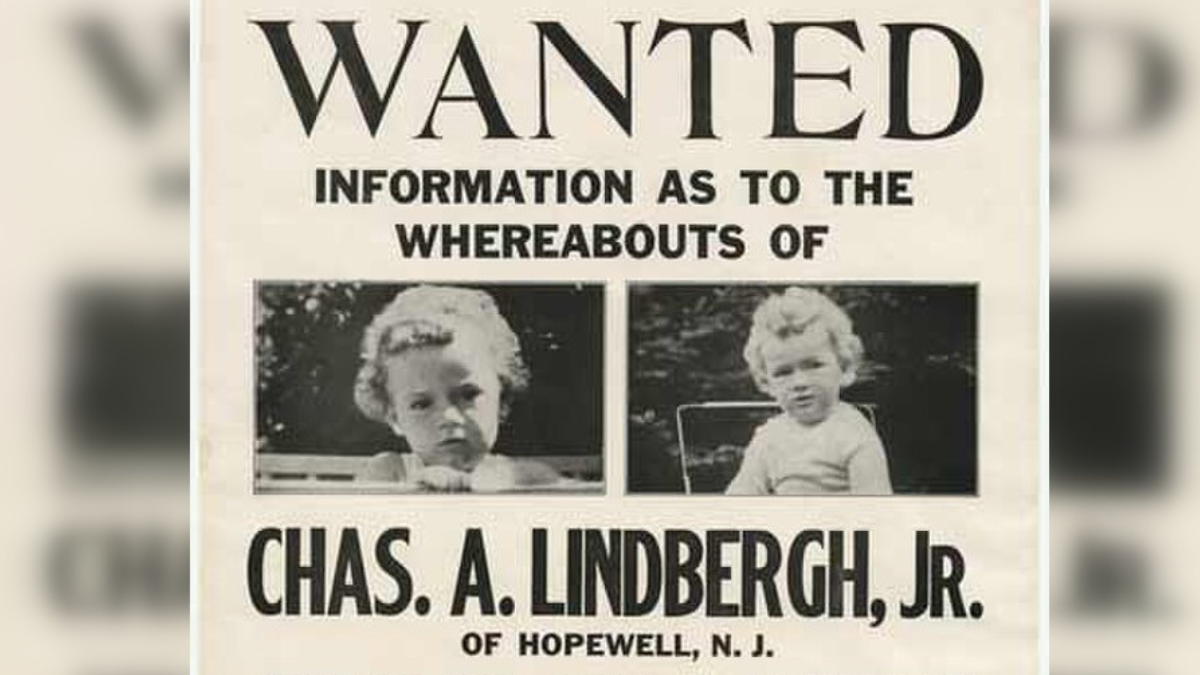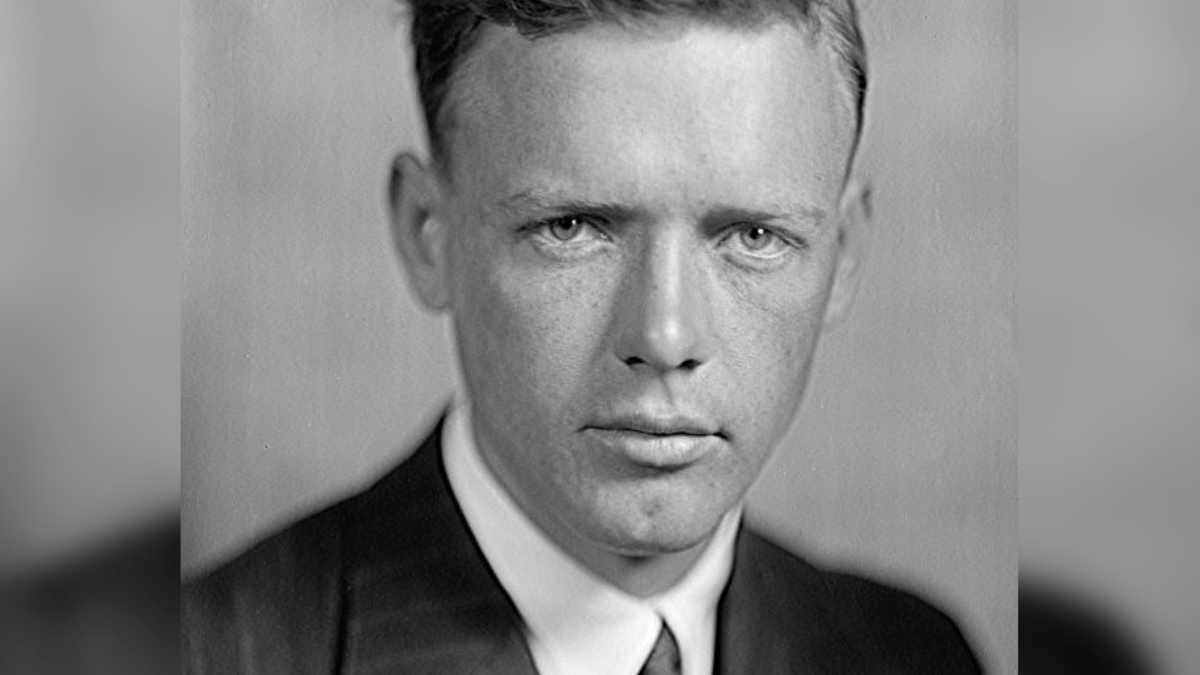Modern media’s obsession with true crime stories can be traced to the 1932 Lindbergh baby kidnapping when the famed aviator’s 20-month-old son disappeared from the Lindbergh home and was found dead. Two years later, Bruno Richard Hauptmann, who said he was innocent, was executed for the crime.
But despite Hauptman’s conviction and death sentence, controversy remains to this day about what really happened to Charles Augustus Lindbergh, Jr., Lindbergh’s son, the night he vanished. Now, more than 90 years later, a disturbing new theory has emerged that Lindbergh himself had a role in his son’s kidnapping. According to those who support the idea, Lindbergh’s alleged motivation for doing so aligns with the dark side of his legacy.
Who was Charles Lindbergh?
In 1932, Charles Lindbergh was one of the most famous people in America, if not the world, having distinguished himself as the first person to complete a nonstop solo transatlantic flight five years earlier. Charles August Lindbergh Jr.’s mother, Anne Morrow, later Anne Morrow Lindbergh, also lived a high-profile life as a diplomat’s daughter, and the couple married in 1929. Lindbergh Jr. was the first of five children the famous couple had. When the toddler, not even yet two years old, disappeared from his nursery at the Lindbergh’s home near Hopewell, New Jersey, the search and discovery of the dead child’s body months later captured headlines worldwide.
What happened to the Lindbergh baby?

At around 10 pm on March 1, 1932, Charles Lindbergh Jr’s nanny, Betty Gow, reported the toddler missing from his second-floor nursery. A random note demanding $50,000 was discovered on the window sill. Mud was discovered on the nursery floor, and footprints were found beneath the window. Meanwhile, the makeshift ladder used to ascend and descend from the window was broken. Otherwise, the investigation into what happened to the boy came up empty.
About five days later, on March 6, Lindbergh and his wife received a second ransom note, postmarked from Brooklyn, New York, asking for $70,000 for the child’s safe return. Then, a third note arrived two days later, and a fourth. At that time, Lindbergh agreed to pay the money through an intermediary. Before the ransom was paid, however, the Lindberghs asked for proof that whoever demanded the money had the child, which, after a series of further written correspondence and covert meetings, arrived in the form of Lindbergh Jr.’s sleeping suit. Meanwhile, the child’s thumb guard was recovered on Lindbergh’s property.
By the time the twelfth note offering the child’s safe return was received, the re-negotiated $50,000 — down from the $100,000 the kidnappers finally asked for — was paid, and the Lindberghs were given instructions to recover the child on Martha’s Vineyard. When the authorities searched that area, the baby was nowhere to be found. On May 12th that year, Lindbergh Jr.’s body was discovered in a shallow grave less than five miles from the Lindbergh New Jersey home. The child died from a blow to the head. But who killed him?
Who was Bruno Richard Hauptmann?

The Lindbergh baby investigation lasted two years until finally, the gold certificates used to pay the ransom started circulating in the New York area. They were traced to Bruno Richard Hauptmann, a German immigrant with a criminal record. Hauptmann was arrested in 1934, but claimed he was innocent and was linked to the Lindbergh crime only through circumstantial evidence. In what was then the “trial of the century,” Hauptmann was convicted and sentenced to death. Claiming he didn’t do it until the day of his execution, Hauptmann, who by that point was known as “the most hated man in the world,” died in the electric chair in April 1936. Whether he was guilty or innocent has been hotly debated since then.
What is the disturbing new Lindbergh kidnapping theory?

It’s well known today that Charles Lindbergh, despite his fame, was a Nazi apologist who believed in eugenics, or the debunked idea that undesirable traits and heritable diseases and genetic conditions could be bred out of the human population. Beginning with her 2020 book, The Lindbergh Kidnapping Suspect No. 1: The Man Who Got Away, Lindbergh kidnapping-researcher Lise Pearlman, now thinks Lindbergh, along with the help of Dr. Alexis Carrel, Lindbergh’s friend, known as the “father of transplant surgery” may have sacrificed his son’s internal organs to repair Lindbergh’s sister-in-law’s damaged heart valve, The New York Times reports.
Charles Lindbergh Jr. was a sickly child, and his cause of death was determined to be a blow to the head, but there was a hole in his skull, and internal organs were missing, at first thought to be caused by animals. No blood was found in the area where Lindbergh Jr.’s remains were recovered, however, nor were there signs of animals. Pearlman — as well as other Lindbergh researchers — now believe the baby died elsewhere, and that his body was placed near Lindbergh’s property. Bruno Richard Hauptmann was framed to cover up the child’s death.
In her book, Pearlman wrote, “I take advantage of the distance in time to treat the boy’s father as a potential suspect in his kidnap and murder; like all the others on the list, a fallible human being, not a demigod.” Speaking with the San Francisco Chronicle, Pearlman added, “My theory is that the child was operated on. We think at the very least that his carotid and probably his thyroid were taken out and kept viable for 30 days. We think he died on the operating table. And I think Carrel conducted the operation with Lindbergh’s permission — and Lindbergh was likely present at the operation.”
Close to a century after Lindbergh Jr.’s murder, Hauptmann’s guilt, as well as the true story of what happened to the toddler, may never be settled in the minds of many. DNA testing on the ransom letters may help skeptics of the official story come close. Still, Dr. Peter Speth, who worked with Pearlman to develop her controversial version of events, told a Times reporter, “[Hauptmann] could not have conceived of it and could not have carried it out.” And Hauptmann’s execution was “a terrible miscarriage of justice,” he added.

